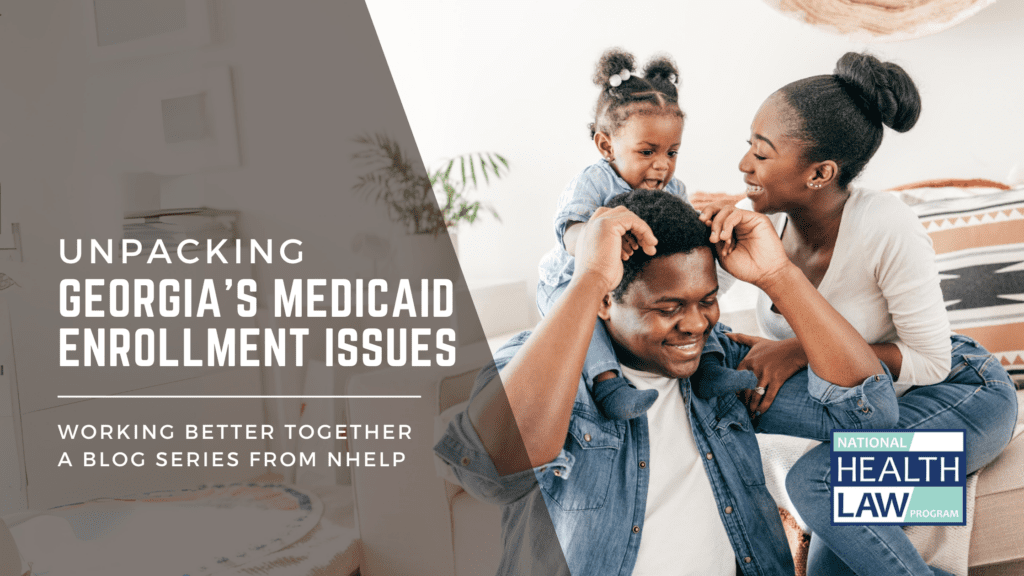Calling for Holistic Maternal Care to Address Racial Disparities: The Role of Midwives and Doulas
By Jordan Brooks and Tamar Ezer
Expanding access to midwives and doulas in the United States is a vital and often overlooked way to increase access to culturally-congruent birthing options during pregnancy and improve health outcomes for birthing individuals and their children.
The Maternal and Infant Health Crisis
The U.S. is the most dangerous developed country in which to give birth, and this crisis is only worsening. According to the U.S. Centers for Disease Control and Prevention (CDC), 1,205 women died due to childbirth-associated health complications in 2021, up from 754 in 2019. Staggeringly, the CDC estimates that four out of five of these deaths are preventable. Further, the U.S. is the most dangerous place to be born in in the developed world. In 2020, 20,000 babies died within their first year of life, and the fifth leading cause of death in these cases was pregnancy complications.
Moreover, this crisis is marked by racial disparities. Black Americans, Native Americans, and Native Hawaiians and Pacific Islanders disproportionately are affected, being 2.8, 2.3, and 4.5 times more likely to experience a pregnancy-related death compared to their white counterparts, respectively.
More than 2.2 million, or one in three, birthing individuals of childbearing age live in maternity care deserts, counties in which access to maternity health care services is limited or altogether absent. An additional 4.7 million birthing individuals live in counties with limited access to maternity care. These numbers are increasing in states with anti-abortion policies, as obstetricians are leaving to practice in states without bans. Experts further predict that states’ adoption of six-week abortion bans will increase maternal sickness and death, with many deaths due to suicide.
Additionally, more than one in three birthing individuals describe their birthing experience as traumatic, and more than one in five display post-traumatic stress disorder symptoms. Birthing individuals from low-income backgrounds were nearly four times as likely to experience “obstetric violence,” a term that refers to abuse, coercion, and disrespect during childbirth..
The Power of Midwives and Doulas
Midwives are healthcare providers that provide care for low-risk birthing individuals before, during, and after giving birth. Doulas provide continuous emotional and physical support to birthing individuals and their families throughout the pregnancy and after giving birth.
Both midwives and doulas enable holistic, individualized, and relationship-based care. Moreover, many provide care that is community-based and culturally congruent. Midwives offer a high-contact, low-intervention approach to maternity care, reducing unnecessary medical interventions and the associated complications. Doulas meet the physical and psychological needs of individuals and program, increasing communication throughout the pregnancy and ultimately improving the labor experience. As Midwife-advocate Jamarah Amani stated in a panel discussion (summarized here) on black midwifery hosted by our Human Rights Clinic and partners, “Bringing back midwifery care brings compassion and humanity to our health care and wellness and wholeness to our communities.”
This results in improved outcomes, including higher rates of vaginal births, fewer medical interventions, and greater patient satisfaction. Midwives and doulas are also cost effective and they increase access to peripartum care, allowing obstetricians to focus their care on higher-risk birthing individuals.
The Underutilization of Midwives and Doulas
Despite being endorsed by the American Medical Association and the American College of Obstetricians and Gynecologists and having empirically demonstrated to provide safer and equally effective care, midwifery care remains an underutilized solution to our maternal health crisis and lags far behind that in other developed countries. In the U.S., obstetricians attend over 90% of births. Access to doulas is even worse, with just 6% of birthing individuals receiving doula assistance, despite the endorsement of the American College of Obstetricians and Gynecologists and the Society of Maternal-Fetal Medicine. In Europe, not only are more than 70% of births assisted by midwives, midwives are also the only caregivers these birthing individuals see throughout their pregnancies.
In the U.S., we suffer from overmedicalization—the overuse of medical practices with no clear benefit and associated complications, and the underuse of effective, safe healthcare practices. The shift to an overmedicalized approach to maternal care is not an accident. In fact, most Americans gave birth nearly exclusively at home until 1930, with the help of midwives, many of whom were Black or Indigenous. From the late 1800s, white male obstetricians fought to move childbirth to a hospital setting where they could preside. They pointed to female weakness, requiring pain medication and other assistance. They further characterized midwives as “a relic of barbarism,” describing them as unscientific, unhygienic, and dangerous, and passed laws requiring certifications.
Now, C-sections are overused in the U.S.; they are performed at more than double the rate of 15% or less recommended by the World Health Organization. About a third of birthing women receive a C-section, at least half of which are unnecessary. These high rates are largely due to scheduling-related convenience and financial incentives from health insurance reimbursement. However, C-sections are a major surgery that causes medical complications to 20,000+ birthing individuals and their offspring each year.
Time for Change
According to Dr. Joia Crear-Perry, the founder and president of the National Birth Equity Collaborative, Black birthing individuals frequently fall “through our big, gaping hole of a healthcare system.” Health equity advocate Wanda Irving, who lost a daughter during childbirth, explains that Black women are often ignored by healthcare providers: “They don’t listen, they don’t hear, they don’t believe, and they don’t act because we are not important enough for them to act.”
Racial injustice in U.S. maternal care featured as a central concern in the recent review by the United Nations Committee on the Elimination of Racial Discrimination for compliance with the International Convention on the Elimination of All Forms of Racial Discrimination. To aid in the Committee’s review, our Human Rights Clinic and the Florida Health Justice Project, with support from Jamarah Amani of the Southern Birth Justice Network, submitted a shadow report highlighting maternal and reproductive injustice in Florida, which complemented a national submission on these concerns by the Center for Reproductive Rights and partners. A coalition of partners further engaged in oral advocacy with the Committee.
These efforts paid off. In its September 2022 Concluding Observations, the U.N. Committee not only highlighted the need for “culturally sensitive and respectful maternal health care, including midwifery care,” but it also identified it as a priority issue on which the U.S. must provide an update within a year.
To assist Florida in meeting this need, our Human Rights Clinic, the Florida Health Justice Project, and a coalition of maternal health advocates released a report with an analysis of the maternal and infant health crisis in Florida and specific recommendations to increase access to midwives and doulas. Florida should increase surveillance of maternal morbidity and mortality and explicitly tie healthcare insurance reimbursement to outcomes. Moreover, government and health insurance companies should ensure full coverage and sufficient reimbursement for both midwives and doulas. Governments, higher education institutions, and healthcare organizations should build capacity and increase providers’ and the public’s knowledge of midwife and doula services.
As Dr. Keisha Goode, an Assistant Professor of Sociology at SUNY Old Westbury, said in our panel discussion, “our current maternal health crisis is a socially constructed crisis.” We have the opportunity for change through midwives and doulas providing holistic maternal care.
Jordan Brooks is a Fellow at the Human Rights Clinic at the University of Miami School of Law.
Tamar Ezer is Acting Director of the Human Rights Clinic at the University of Miami School of Law.






